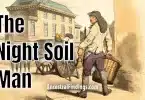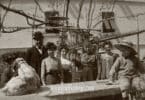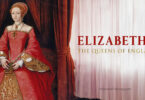Genealogy can feel like an adventurous journey through time, connecting us to individuals who lived many generations ago. When we set out to uncover our English ancestry, we’re not just looking for names and dates on dusty documents. We’re seeking real stories of people who shaped our families and, in some way, contributed to who we are today. This search can reveal the twists and turns our relatives experienced, whether they lived in rural villages dotted across rolling hills or bustling city streets teeming with industrial energy.
Tracing English ancestry has a unique charm. Perhaps it’s the centuries of rich history woven into every county or the sight of old stone churches that carry the footprints of countless family events. Many find the process both exciting and challenging. Records might include nearly incomprehensible handwriting or archaic spelling that isn’t used anymore. Nevertheless, these small mysteries are exactly what can make the search so thrilling. It feels like uncovering secrets hidden within old parchment and gradually piecing together the daily lives of those who came before us.
Let’s explore the key elements of finding your English roots. We’ll look at essential historical records, talk about online resources, highlight valuable research strategies, and uncover the emotional significance of sharing your ancestral story with others. Along the way, I’ll include anecdotes and tips that may help turn what might feel like a formal research project into an exciting mission. So please grab a cup of tea (in proper English spirit!), and let’s embark on a quest into your past.
Exploring Historical Records
Parish Registers
If you’ve ever wondered what everyday life was like for your ancestors in a rural village or a bustling English town, parish registers can be a wonderful starting point. These records, often kept by local churches, contain entries of baptisms, marriages, and burials. Because the Church of England was once the official record-keeper for many communities, you can locate essential details about your family’s milestones in these books. Since the government took over record-keeping responsibilities, they were especially valuable before civil registration began in 1837.
One reason parish registers feel so fascinating is their immediacy. Imagine sitting in a quiet church, flipping through pages that might have been penned centuries ago. You might uncover the record of your fifth-great-grandparent’s christening or see scribbled notes next to a marriage entry, revealing glimpses of local customs and family connections. These entries might even include unusual tidbits, like a mention of a “pauper’s wedding” or notes about local festivities around the holiday seasons. Whenever I track down a parish register for one of my ancestors’ home parishes, I imagine the bells chiming as neighbors gathered for important life events—moments that held just as much excitement in the 18th or 19th century as they would for us today.
Census Records
Census records are snapshots of family life, providing a window into your relatives’ households at specific times. In England, official censuses have occurred every decade since 1801, although records from 1841 onward are more commonly used for detailed genealogical research. These documents typically include names, ages, occupations, and place of birth for each household member. From them, you can learn how family units changed over time—children being born, relatives moving in, and older members passing on.
Imagine scanning a census from 1881 and spotting your great-great-grandfather listed as a coal miner or a dressmaker. This sort of detail can spark your imagination: what was it like to come home at the end of a long day spent in a dark tunnel, or to craft clothing for a lively Victorian community? It’s remarkable how even these single-page entries can open up questions and curiosities. I once found an entry listing a relative as a “scholar” at eight years old. It led me to consider how that relative’s early education might have shaped the family’s future prospects. In another census entry, one ancestor was 70 years old and still working, which made me think about the different expectations placed on individuals in another era.
Probate records hold the key to discovering land transfers, inheritance details, and the distribution of family possessions. When a person passed away in England, their estate went through a legal procedure to settle debts, determine ownership of property, and distribute any remaining possessions to heirs. These documents can confirm relationships between family members, since they often list the names of children, spouses, or siblings. Sometimes, you might even find an itemized inventory of the estate, complete with everything from livestock to household items.
Examining these documents can bring to life the everyday circumstances of our ancestors, such as how much land they worked or the trades they practiced. If you locate a record showing that your ancestor bequeathed a spinning wheel to a daughter, that small detail suddenly becomes a touching piece of family heritage. You might wonder about the significance of that spinning wheel—was it vital for earning a living, or a cherished possession passed down through several generations?
Utilizing Online Resources
In today’s tech-driven world, research is far more convenient than it was for our grandparents. Instead of traveling to physical archives in England, we can browse countless documents online. Of course, nothing quite compares to experiencing the real historical sites, but modern tools can help us bridge vast distances and give us enormous amounts of information at our fingertips.
Ancestry.com, Findmypast.com, and FamilySearch.org
These major online platforms are powerhouses for accessing English records. They offer access to census data, parish registers, military records, and much more. While subscription fees may apply for some sites, they can be invaluable when you’re systematically assembling your family tree. Each site has its own nuances. For instance, Findmypast.com may have certain exclusive English collections, whereas Ancestry.com might have a broader global focus. FamilySearch.org, run by The Church of Jesus Christ of Latter-day Saints, is free to use and can be quite extensive, although indexing may differ from site to site.
When using these platforms, organization is your best friend. Create a personal account and start building your family tree, adding records and attaching documents to individuals. This helps you see patterns over time and quickly refer back to sources without misplacing anything. One tip I’ve found incredibly helpful is to keep both a digital log (like an Excel spreadsheet) and a physical notebook so that I can jot down anything that stands out or merits a follow-up search.
Free Resources: National Archives and County-Level Historical Societies
Though subscription-based sites are very handy, don’t overlook free databases and community-driven projects. The National Archives in England has a substantial online presence, offering guides and direct access to certain digitized collections. If you’re searching for specific documents—such as military records, wills, or government archives—this can be a treasure trove of official paperwork.
County-level archives and historical societies are another excellent resource. Often, these societies store local records, news clippings, and genealogical research contributed by community members. Many have their own websites with online catalogs, or they can guide you to local volunteers who have transcribed old registers. In some cases, you may even find free message boards where fellow enthusiasts chat about local families. A simple search along the lines of “Lancashire historical society” or “Sussex family history society” might lead you straight to a regional group that has already done years of legwork on surname clusters.
Tips for Navigating Online Databases
• Vary Your Search Terms: Names in older records can appear with countless spellings, thanks to shifting dialects and evolving language. Try different versions of your ancestors’ names or type them phonetically.
• Use Filters Wisely: Most genealogy websites allow filters by location, date range, record type, and more. Narrow things down but be careful not to exclude valuable possibilities through overly restrictive searches.
• Keep a Research Journal: Note the date of each search, where you looked, and any results (even if negative). This can save you from going in circles later.
• Leverage Hints with Caution: Automated hints on sites like Ancestry can be a good starting point, but always verify details with original sources or official records.
Essential Research Strategies
Start with What You Know
Any successful genealogical project begins with gathering the information you already have. Begin by talking to relatives, combing through old family albums, or taking a look at birth, marriage, and death certificates in your possession. By writing down every detail you uncover—dates, names, occupations, places—you create a foundation for your research. It’s easy to overlook living relatives as valuable repositories of knowledge. Even small anecdotes from a great-aunt could direct you to a specific region of England or a local tradition that makes your lineage clearer.
I learned this lesson firsthand when my mother casually mentioned that her grandfather grew up near the docks in Liverpool. That detail opened a gateway to maritime records and eventually led me to discover that he worked on a local ferry. Without my mother’s offhand comment, I might never have searched in that direction.
Building Your Family Tree
Once you start gathering information, it’s time to piece everything together in a structured family tree. Many genealogical websites offer interactive tools that let you add relatives, documents, and events step-by-step. As you enter more data, you may uncover new connections to other people’s family trees. Proceed carefully, though. Just because someone else’s tree lists a certain person as your ancestor doesn’t mean it’s accurate. Always confirm any claims by looking at solid documentation.
Think of this process as assembling a massive jigsaw puzzle. Each new record you find can be compared against what you already have. Over time, you’ll notice patterns: a last name might appear in a particular village for multiple generations, or you’ll see a tradition of naming sons after their fathers. These repeat patterns can be clues that you’re on the right track.
The Value of Collaboration
Genealogy doesn’t have to be a solitary pursuit. In fact, it can be wonderfully social when you engage with others who share your passion or have overlapping family lines. Online forums and family history societies dedicated to English genealogy can be excellent places to ask questions, swap information, and look for potential leads. Don’t hesitate to post a message on a community board saying, “I’m searching for the descendants of John Smith from Kent, who lived there in the late 1800s.” You never know who might see your message and have relevant records or photos.
Collaborating in this way not only multiplies your research efforts but also breathes life into the discoveries you make. Hearing someone else’s story about a shared ancestor can enrich your understanding of that person’s life. I’ve had experiences where a fellow family historian sent me a scanned newspaper clipping about a distant aunt’s wedding, complete with vivid descriptions of what the bride wore and who attended. Suddenly, that aunt became more than a name on the tree. She felt like a real person living in a particular moment.
Unveiling Your Ancestral Story
Emotional Connections
Once you’ve located several generations of English relatives, you might feel a deeper emotional impact than you anticipated. Recognizing that your ancestors walked the cobbled streets of London or harvested grain in a county parish adds new depth to your family identity. Piecing together their stories can help you appreciate their hopes and struggles. For instance, discovering that an ancestor overcame hardship to provide for future generations can inspire you to view your present circumstances in a different light.
As an example, I learned that one of my own ancestors left a small farm in Somerset to seek work in a nearby town when agricultural jobs were dwindling. It was incredibly moving to discover that his decision likely paved the way for subsequent generations to find better opportunities. That knowledge brought a sense of gratitude and admiration for the resilience in my family line.
Connecting with the Past
Exploring your English roots can also deepen your appreciation for the broader tapestry of history. By learning about events that affected your ancestors—like periods of economic change, migrations prompted by the Industrial Revolution, or large-scale social shifts—you begin to see these moments not just as historical facts but as catalysts that shaped your own heritage.
If you ever have the chance to travel to England, visiting the actual places where your ancestors once lived can be a touching experience. Strolling through a small village street they might have walked, or stepping inside a church where they were married, can give you a powerful sense of connection. It’s one thing to read about these places in old documents, but quite another to stand there and feel the atmosphere, imagining the laughter and conversations that took place long ago.
Preserving and Sharing Your Findings
After you’ve compiled a rich family story, you have the opportunity to share it with relatives and future generations. Some people create printed photo albums or family history books, combining ancestral photos, documents, and a narrative describing how everything ties together. Others choose to set up a private website or social media group. If you’re comfortable speaking in public, you might even host a small gathering—like a family reunion—where you share the highlights. It’s a lovely way to build connections among extended relatives who might not otherwise know the deeper details of their shared past.
Don’t underestimate how meaningful these efforts can be. Younger family members could experience a sense of pride and curiosity about their heritage. For older relatives, seeing their ancestors honored in such a way can be a poignant moment. By preserving these stories, you’re ensuring they won’t fade away once we’re no longer here to tell them. Instead, they remain part of the ongoing narrative of your family’s place in English history.
Conclusion
Tracing your English ancestry can be a truly enriching journey that merges research, personal stories, and a broader appreciation for history. From the careful examination of parish registers to the exploration of census records and probate files, each piece of evidence offers a window into the daily lives of those who came before us. Modern online platforms have made it easier than ever to find and organize these discoveries, though it’s vital to approach them with a thoughtful, systematic method.
Starting with what you already know sets a sturdy foundation, while building your family tree step by step helps connect generations that once seemed lost in the haze of time. The community aspect of genealogy—whether through digital forums or local societies—can add another layer of richness, as shared knowledge fosters collaboration and sparks personal connections. Ultimately, the emotional impact of uncovering and preserving your family’s narrative may surprise you. Learning about your ancestors’ occupations, their migrations, or even their small-day-to-day struggles can evoke a profound sense of identity and gratitude.
This pursuit isn’t just about collecting documents. It’s about revisiting an unfolding story that starts hundreds of years ago in an English parish and continues through you and your loved ones. Whether you’re just beginning or have already discovered significant details, there’s always more to find—another path to follow, another intriguing clue to chase. And while the records themselves might be stored in various archives or websites, the real treasure lies in the feelings of connection and belonging that bloom when you uncover who your family was and how they lived.
As you continue your research, remember to enjoy the quest. Be patient with the process, celebrate each small victory, and share what you discover. You might inspire someone else to begin their own genealogical journey—and before you know it, you’ll have built a community of curious minds and open hearts, all tracing their history back to those quietly recorded English roots.






